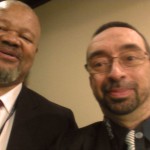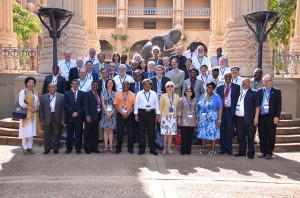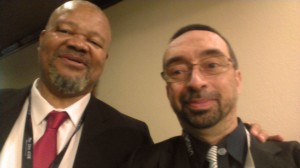High Level Policy Forum ICDE-UNESCO. Nowadays, learning is what happens off-classroom

Right today, Saturday 17th, 2015, over 120 experts from Worldwide gather together at the University of SouthAfrica, in Pretoria. My colleagues come from the five continents, and many of them come just for the day. From Bulgaria, United States, China, UK, and other geographically distant places. They arrived yesterday and leave this afternoon or tomorrow morning. Certainly, a proof of interest and commitment. This High Level Policy Forum is organised by ICDE, UNESCO and the Open Education Consortium (http://www.oeconsortium.org), and hosted by UNISA, and Prof. Mandla Makhanya, Principal of this university.
We discuss about the challenges to make open education sustainable. One concern is quality, so that nobody can question the usefulness and level of Open Educational Resources (OER). Also, access, how not. I already posted an entry in this blog [ICDE World Conf 2015. #2] about how access without a clear connection to competences and the market labour is well intentioned, but sort-of naïve. In this forum, someone suggested to include free access to network, as a complementary type of access.

Three challenges for OER
All in all, and after a fruitful discussion, I raise three complementary challenges to make OER something fully integrated in the Educational system, and useful to the Educational community:
1) Methodology. It does not matter (much) if we have got a large bunch of OER, as long as we lack of a thoughtful and thorough educational methodology to make them worth it into the system;
2) Integration of formal, non-formal and informal learning. Learning is what happens off-classroom, nowadays. We require an urgent action to combine official credit-based educational system with all what is learnt outside the system;
3) Accreditation and quality, supported by the Administration [ICDE World Conf 2015. #4], which will make meaningful the designed methodology (1) towards the integration all types of learning (2) into a learning pathway.

There is no way to ensure a sustainable development and implementation without a clear, integrated action plan which is not neglecting the reality of our over-connected, multi-device, multi-source, multi-interaction World. We can stay blind and stick to traditional approach for academic learning. However, what we are missing out there, is so huge, that it is worth it to reconsider, and to critically apply specific actions towards integration.
Daniel Burgos
